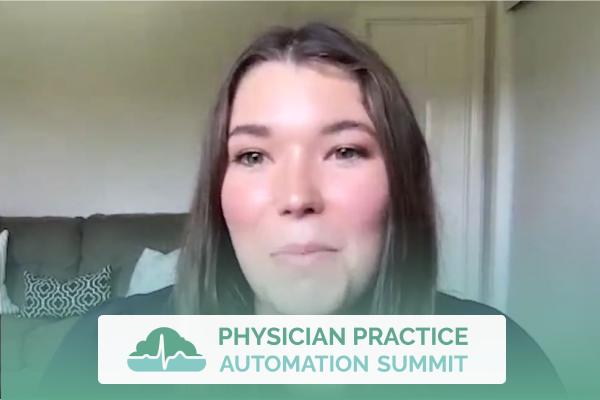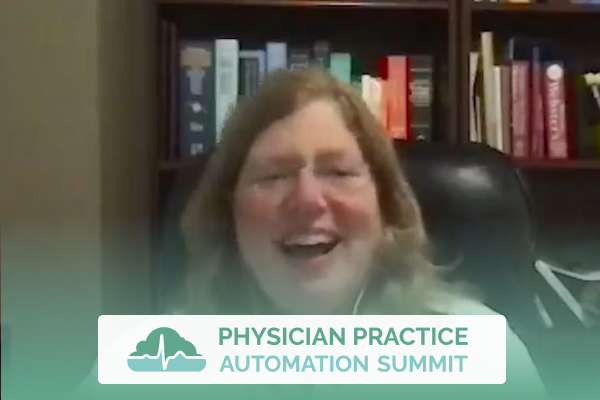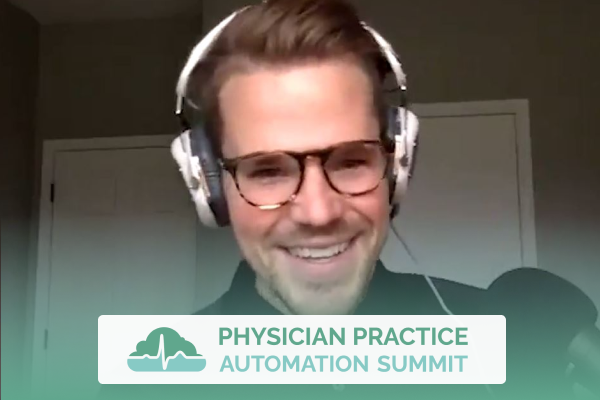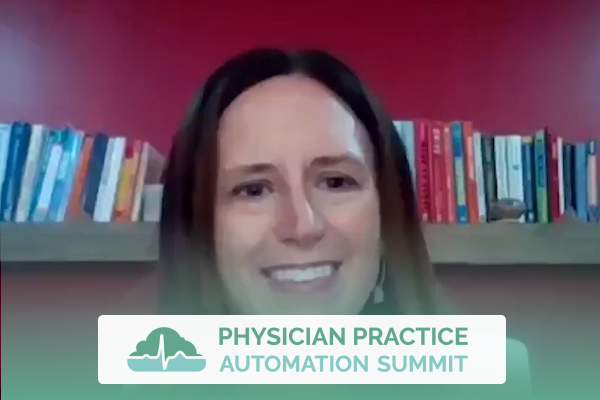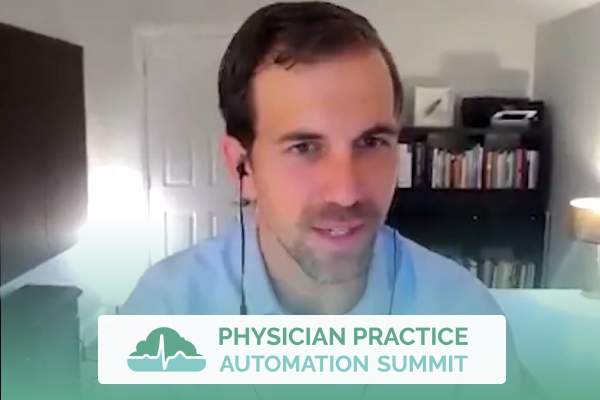Join the discussion below

Dr. Ruan is the Founder and CEO of Texas Center for Lifestyle Medicine. He devotes his career in practicing and building systems that allow for efficient delivery of healthcare. He is a board certified internal medicine physician but also have advised with companies to improve their workflow, company culture, marketing,... Read More

Amanda Desuacido is a young CEO who has a passion for living a meaningful life, whether that be in her work or personal life. My Mountain Mover was born out of a desire to transform businesses around the world while also enriching the lives of thousands, something that is not... Read More
Cheng-Huai Ruan, M.D.
All right everyone, I have someone super special with me today, Amanda Desuacido, And she is awesome, she’s a really passionate individual, really passionate for life, in work and personal life. And she has this company called My Mountain Mover, which is a really cool name. And it’s really born out of a desire to transform business around the world and also enriching the lives of thousands of business owners and the employees that work within them. Her thoughtful leadership style and motivation to achieve success has created one of the fastest growing outsourcing companies, which actually I would argue, that’s an insourcing company, and we’ll talk about that in a second, in the United States, primarily focused on the healthcare industry, which is awesome, that she’s on today. And she looks forward to contributing to economical solution, which we need economical solutions within the health industry that could be utilized by any businesses. So Amanda, welcome to the show, appreciate it.
Amanda Desuasido
Thank you so much, thanks for having me.
Cheng-Huai Ruan, M.D.
Oh, so first of all, I just have to get something out of the way first, My Mountain Mover. I want to know where you came up with the name. How did that even come up in the first place?
Amanda Desuasido
Well, we wanted to create something that represented what our VA’s are capable of. So when we first kind of-
Cheng-Huai Ruan, M.D.
VAs are you your virtual assistants you mean?
Amanda Desuasido
Virtual assistants, yep. . So when we were toying around with the name, we wanted to do something that represented everything that they were capable of. Because when you think of a virtual assistant, people are like, oh, like the companies that are you call in and they have an accent on the phone. It’s hard to understand them, right? No, that’s not what a virtual assistant is. They’re so much more. So we wanted to kind of think of a name that could embody that. So we had a think of, maybe we call them Busy Bees or Worker Bees, but then when we kind of came up with the name, My Mountain Mover, it really embodied what we wanted our VAs to represent. They’re actually moving mountains for businesses all around the world, practices all around the world. And also too, my faith is very important to me. And so it’s a biblical reference as well.
Cheng-Huai Ruan, M.D.
Well, great, I mean that’s such impactful name, and it’s really gutsy to even put it out there. Because you’re really promising a lot with that name, Mountain Moving,
Amanda Desuasido
Yes, exactly, so no small feat, the kind of a mountains that believe in our VAs.
Cheng-Huai Ruan, M.D.
Gotcha, so I’ll tell you this, most of our audience probably don’t know what a virtual assistant is. So we’ll kind of start from the basics a little bit. And I’m going to help define it a little bit. So virtual assistants are exactly what it sounds, they assist you virtually, they’d be not be within your medical practice, they may be off site somewhere outside the country. So I’ve been working with virtual assistants for 10 plus years in multiple different companies. And even at Texas Center for Lifestyle Medicine, a third of our staff are actually virtual assistants. And it’s great because it really allows us to do the things that we want to do, it allows my in-person employees to really take command of a leadership role, and it really drives a lot of value to the company and the culture to the company. And so in the healthcare field, there’s a huge hesitation. I know because I’ve talked to a lot of people. And as you said, it was like, okay, well maybe they’re outside of the country or they’re in another area. And maybe my patients don’t understand what they’re saying. How does my staff communicate with them? They can’t just tap them on the shoulder, it’s like yeah, can you get this for me? That’s where the hesitation is. And there’s a higher level of hesitation, is that a lot of leaders don’t know how to lead someone who’s virtual, right? Can you kind of address those?
Amanda Desuasido
Yeah, I completely agree, especially, like you said, this component of not having them in the office, but there’s also on top of this fear, is this fear of patient information, right? The security aspect of our virtual assistants. And I think, when we’re introducing the idea of a virtual assistant to primary physicians or doctors or business owners, their first question is okay, I’m all for it, it sounds like a great concept, but I have no idea how to actually implement this into my practice. And this is where I think we excel in, because we do not leave you on your own. And as a part of My Mountain Mover, it was very important to me that from the start of the conversation that you have, to the point of hiring, there is someone to guide you every single point and every single point along the way.
So you’re assigned an industry manager to make sure that you’re successful with your VA. So we go through all the hoops, all of our virtual assistants have to be HIPAA certified, they take training courses, they go through a rigorous vetting process. We walk you through to make sure that these VAs are going to be okay in your practice. And once you kind of get out of that hurdle, I think COVID actually has been kind of a weird blessing in disguise in this way, is that practices are kind of forced to go virtual now. So it’s opened an opportunity for people to be more interactive virtually, right? We’re talking through Zoom right now, you can call your doctor on the phone. So it’s starting to get a little bit more natural in the healthcare space to go virtual, which is great.
Cheng-Huai Ruan, M.D.
Yeah, I think you’re right. I think coronavirus, the situation with the pandemic has really allowed the consumers of health care, the patients, to adopt onto technology platforms. Now they’re used to Zoom, now they’re used to doing telemedicine, there’s like an expectation. In fact, there’s a study that was done at the Mayo Clinic, it was June of 2021, very recently just published, looking at how 43% of patients actually prefer telemedicine. And I think that’s really underpowered, because it depends on the age group, and who you’re trying to see. And so that was more predominantly like Medicare population, older, elderly population. If you think about 43% of those patients went telemedicine, like something shifted dramatically. There’s a fear of leaving the home, there’s also people have a hard time driving, so their access to healthcare is not great. And so in 2020, there were multiple changes that Center for Medicare and Medicare Services proposed. And a lot of them had to do with, hey, all these reimbursable codes that you used to have to do in person, hey, you can actually do this on telemedicine.
Amanda Desuasido
In telemedicine, yep.
Cheng-Huai Ruan, M.D.
I’m like cool, we can definitely do that. So we actually switched our practice from about 5% telemedicine to 86% telemedicine, within, no lie, within three weeks, that’s what we did. We had three locations and we actually decided to close down the other two and focus on our main location. And eventually moved our of main location to another location. So we actually decrease our fixed costs, but we tripled down on our virtual assistants during that time. And part of the reason is because there’s this definition of of people in the workplace within private practice. So you have your doctor, you have your nurse practitioner or physician assistant, and you have medical systems, you have office manager, front office, you have a back office. So those are your core.
So what we decided to do was like, instead of just labeling it, let’s see what are the responsibilities of each person and who can do it virtually, who does not have to be in person to do it? And that came out of the pandemic.. So when we put this all on a whiteboard, we realized that, okay, medical assistants have like four different columns, and then front office has this, back office has this. So we realized that why not just allocate the responsibilities and create a role out of it for our virtual assistants? And that’s what dramatically improved the way that we actually deliver care to our patients. So I do agree with that, but it does take some sitting down and planning and thinking about how that could possibly work. So you said earlier that you have people within your company, let’s say that someone hires a virtual assistant through your company, so there’s someone to walk the practice through how that virtual assistant integrates into the practice?
Amanda Desuasido
Yes, yes, exactly. And I think this is kind of unique to MMM, My Mountain Mover. Because most of the other virtual assistant companies, it’s like, okay, you get in the door, you get your VA, great, okay, now you’re all good, have fun with your virtual assistant, but that is the wrong approach, especially in the healthcare space, when virtual assistants are kind of just getting into the healthcare industry. They need to feel like they’re supported. So what we do is we assign an industry manager, specifically to your account. So if your practice was to come in and you hired one or two virtual assistants, you would be assigned an industry manager who would meet with you, make sure that all of your systems and your software are set up and ready to go with the virtual assistant on their start date.
So by the time that they start, they’re ready to go and we set up monthly check-ins to make sure that you’re okay with your virtual assistant. What are your concerns? What are your 30, 60, 90 day expectations for your virtual assistant? So we really try to make sure that there’s a structure in place where you’re supported. So it’s basically like, not only are you getting a virtual assistant, but you’re almost always already getting a manager to manage a virtual assistant too, which I think is really helpful for doctors. Especially because often what we see is that these doctors come to us to the point of exhaustion, they’re kind of at their wits end, they are very overworked, they really want to focus back on their patient care, but they’re losing that ability to because of the admin burden. And we hear this term, it’s all over the place, but it’s actually incredibly real. And our virtual assistants can be part of that solution for those doctors.
Cheng-Huai Ruan, M.D.
Well, you mentioned administrative burden, right? What does that mean to you? What does that look like to the doctors that come to you guys?
Amanda Desuasido
So we specialize not only in your normal internal medicine or primary care, but we have specialties across the board, which makes us really unique, because we can find a virtual assistant really, to specialize in what you need. So, yeah, I think there is just this gap in what physicians are actually capable or what they were trained to do. If you’re a physician, you did not sign up to go to business school. And we have a lot of small to medium sized private practice. So when they try to start their own company, they’re in it to provide better patient care, they’re not in it to run a business often, and it’s this huge struggle for them. So what our VAs do is alleviate that back end burden, so they can answer your incoming phone calls, like you said, they can provide charting, they can do patient scheduling, they can do inbound and outbound calls for you, that’s kind of what our VAs are really, really good at, is relieving any of those tasks that you technically really shouldn’t be doing, that you don’t excel in, you can hand that off to a VA and really get back to the things that only you can do as a doctor.
Cheng-Huai Ruan, M.D.
Well, you’re right, we didn’t really sign up to go to business school. And some of us were kind of forced into that sort of mindset to learn on our own. It’s a steep learning curve, I’ve been there, I’m kind of still there. So it’s a really steep learning curve.
Amanda Desuasido
Yes
Cheng-Huai Ruan, M.D.
But I think that, and I’ll tell you, my experience with virtual assistants in general is that, I’ve been working with VAs for 10 years, and every time it’s like, you’re training from the ground up and you’re right, I’ve never really experienced a company that kind of walks you through, 30, 60, 90 days, what do you expect? And more of a leadership style. So I do think that’s a very welcoming thing. But there’s also people that are watching this, that are already familiar with virtual assistants. And I know they are because I know a lot of the people who are watching this, and what they’ve done is what I’ve done before in the past, is they go on a platform like Fiverr for example, or what does that, freelancer.com and stuff like that. And they have these VA’s and they have bad experiences with it. And because either there’s a , or there’s not necessarily training or expectation that’s really set up this way, but it was like a cheap thing to kind of go into and dabble into.
Amanda Desuasido
Yes.
Cheng-Huai Ruan, M.D.
So my pain point, just from a few years ago and doing this is that you almost have to like build a structure around the virtual assistant support, and that actually took a lot of time out of my work and my responsibilities to do that. How do you compare that experience to what you got going on at My Mountain Mover?
Amanda Desuasido
Yeah, that’s a good point. It’s so disheartening to hear that too, because we have clients that are like that too. They said, well, you know, I don’t know, I’ve had a bad experience in the past. And if you were to go on Freelancer or Fiverr, those VAs are independent contractors, right? They are with multiple clients. They’re not committed to your practice. They’re really just in it for the quick buck, and they don’t have any reason to stay with you. So what is beautiful about My Mountain Mover, is that we truly honestly only hire the top 2% of all applications that come in. We are extremely picky with who we let into the company because of that exact reason.
We want to make sure that our virtual assistants, from the moment that you hire them, they are going to be a value add to your company or to your practice. So we make sure that we incentivize them to stay. So it’s a combination of their salary, we want to make sure that they’re compensated well, so that it motivates them to stay. We make sure that we give them bonuses. We make sure that we provide health insurance for them. We make sure that if they don’t work out with one client, they have a chance at another client. So there’s a lot of backend work that My Mountain Mover does to ensure that you’re going to have a good experience with your VA. And you don’t have to worry about those things, right? That’s why you pay us is because we take care of that. So you don’t have to.
Cheng-Huai Ruan, M.D.
Have you all looked at cost savings when it comes to a practice using virtual assistants at all?
Amanda Desuasido
Yeah, we’ve done it a little bit. We’ve calculated it’s around a 60 to 70% savings compared to a medical assistant that you would hire in California. So I’m in California. A medical assistant goes for around 5,000, $5,500 a month. You could get a virtual medical assistant for 1,825 a month. Full-time, probably even more support than you would with a medical assistant, because we have the industry manager there to walk you through the platform. And you’re not having to pay for a computer. You’re not having to pay for office space. You’re not having to pay for employment insurance or health insurance for them. So it kind of alleviates all of those extra fees that you normally would have to pay for an in-person medical assistant.
Cheng-Huai Ruan, M.D.
Great, so let’s talk about some use cases that your clients have. How they currently utilize your virtual assistants?
Amanda Desuasido
Yeah, great question. So this kind of ranges, based on the specialty of the practice, but our most common job role that we offer is our medical receptionist role. So these are medical receptionists, their job description is basically like your very own receptionist, except it’s virtual. So they answer incoming and outgoing patient calls, they handle prescription refills, they handle the patient calendars, scheduling appointments for you, they handle lab results, x-rays, any sort of that medical receptionist role, is a very common one that we provide, that we see a lot. Another one that we see a lot is our medical scribes. So this one is actually maybe what I’m most excited about because it’s just a huge. Our doctors get so excited that we could even offer something like this to them.
So what our medical scribes do is that if you’re a doctor and you’re seeing a patient, you could have your virtual assistant either live on an iPad, or you’re recording the session and you send it to them, send it to the virtual assistant in your EMR. And they can be live charting for you while you’re seeing your patient. Because we all know no one likes to go into the doctor’s office and just have your doctor just sitting there on a computer, not really even interacting with you, because they have to document, that’s just our world, the technology is even kind of falling behind in the healthcare space and they have to make sure they document. So what our VAs do is they kind of take that out of the equation. All the doctor has to do at the end of the visit, is check to make sure that everything’s done, and say, okay, great, you need to send in this refill, you need to send him this prescription and it’s all good to go. So we see a lot of that. Plus we offer other job roles such as medical billers, coders, RPM assistance, you name it.
Cheng-Huai Ruan, M.D.
So that’s great. So I’m curious, do you feel like, or have you gotten any reports that a lot of physician practices feel like they serve their patients better in this way, compared to the conventional way?
Amanda Desuasido
I think so, I think so. When you have more staff on hand, the experience just gets better. And if your doctor is able to see more patients in a more effective way, then it just lends itself to a better office environment. So we definitely have seen some great results. One of our clients, she had her virtual assistant go back through all of her previous billable hours. And this virtual assistant was able to find $40,000 of missed billable hours, that they were able to recover because of that virtual assistant. So it’s just so exciting to see cases like that where these virtual assistants are really, really paying for themselves and increasing the bottom line of the practice.
Cheng-Huai Ruan, M.D.
Yeah, billable hours, that’s actually a big one for 2021, and the reason I find that, is because there’s now units of time that physicians and physician assistants and nurse practitioners can bill and these correlate with timing codes that are with digital communication with the patients, as well as phone communication. And if you’re the doctor talking to the patient’s doctor without the patient being there, completely separate, there’s the interpersonal communication code that we can get reimbursed for now. And these are all brand new. Most of it started in 2020, 2021, there’s a whole new set of things that are there. And so a lot of doctors are actually missing out on these opportunities, but because they’re actually there, we actually engineered a lot of our workflow processes for digital communications. Hey, we know that we’re gonna get paid for this five minute phone call. So why not put that into our revenue model and then designate a day we’re doing phone calls for these labs that are coming back stuff like that, rather than having them wait like four weeks for another appointment.
Amanda Desuasido
Yeah, smart.
Cheng-Huai Ruan, M.D.
But we couldn’t have done that without our virtual assistants. And so the other thing is that we have a few providers who only come into the office one or two days a week, the rest, they’re at home doing telemedicine. And my thought is like, well, if you’re at home doing telemedicine, we don’t really need an in-person medical assistant to be helping you triage. We need that to be done virtually. So there’s a lot of virtual triage that’s going on. So that’s why I say like, for the people who are watching this, don’t just think that your medical assistant is like one whole unit, divide some of that work up, whatever can be done virtually, which is like 90%, can be done virtually. And now that person can focus on the in-person, inpatient visits as well.
And then productivity, which is that if you spend 60 minutes doing four different projects, you have a loss of transition time between the projects and the conglomerate effort is much less. Instead of spending 60 minutes doing one thing, and so that productivity is accelerated when you have your medical assistants or your biller, whoever it is, do like this one specific thing. So they don’t have to be interrupted on it. And that’s huge value added, and that’s huge money saved to decrease our FTEs, which is full-time employee expenses, as well. So I think there’s multiple levels of cost savings that virtual assistants can have. And so that’s a lot of things that we’ll be talking about in other parts of the summit as well. So this all sounds fabulous. So let me ask you a little more personal question, like why did you start this company and what are the core values?
Amanda Desuasido
Yeah, that’s a great question. So our owner, he has several companies, mainly in the real estate world. So when I first started out with him, I was actually hired on to do marketing for his company. So my background is actually in marketing. And at that time I had 10 virtual assistants actually assisting me with marketing for his companies. So that kind of just set the spark, right? We had never experienced a virtual assistant, I didn’t even know what a virtual assistant was. I was like, what how could you have an employee halfway around the world? How was that even gonna work for marketing? It’s definitely a learning curve in the beginning, but once we kind of got down what we needed from them, it was just remarkable what a value add they were, not only in the savings, because our ROI was going up on every single project, because things that would have taken me thousands of more dollars to get done, I was able to just hand it off to a VA, and for 1,725, 1,825 a month, and it was getting done. So there was just a huge value add there. Their just level of compassion and their work culture in the Philippines is so different than in America. They’re hungry for the job, they’re willing to work, they want to provide for their families.
So we saw that in them and we looked at each other and we’re like, you know what? We can do this. There’s an opportunity here for businesses that need sort of this basic admin office, backend support, that’s really difficult to get, you have to go through a huge amount of applications, it takes months to hire normally. And then you finally get someone and it’s just an average person, right? So for our virtual assistants, that kind of set off the idea and set off the spark for us to want to do this. But then a global pandemic kit, and this kind of rechanged our focus of what type of virtual assistant company do we want to have? What is the value here? And like I said earlier, COVID, actually kind of spurred this momentum towards virtual assistants because of the environment that we were in, everyone had to stay home, they had to learn how to adapt to work on home, they needed help.
So it just opened up the doors for people to be more willing to have a virtual assistant. So we started, we launched, we gained some traction in the healthcare space, because of telehealth exploding, So that’s kind of how we started. It was just spur of the moment, we had virtual assistants, we had a great kind of experience with them, we saw the potential, there wasn’t really anyone out there that was doing virtual assistants on the large scale, done well, and we thought, you know what, we can do this. So that’s how we started.
Cheng-Huai Ruan, M.D.
You know, we always get triumph out of need.
Amanda Desuasido
Yes.
Cheng-Huai Ruan, M.D.
So let me ask you a bit of a harder question now, what do you know now that you wish you knew when you first started this?
Amanda Desuasido
This is a tough question because I am so young. So I feel like I still am learning so much. I’ve never run a company and never started a company before, and that has its own unique challenges. But I wish I would have just maybe done it before. I think the trial by fire is just maybe my life mantra nowadays. You never know how it’s going to be. And if you just sit in your fear and kind of just, well, what if we do this? Or what if we do this?? And you’re analyzing, you tend to to almost get stuck in your over-analyzing rather than just committing to doing it. We’re going to do this, we’re going to do it well. I think there was a passion there on my end of really wanting to provide good quality help for businesses across the US. Well, that’s our mission statement. It’s providing amazing people for businesses around the world while enriching the lives of thousands. It’s really hard to combine running a business with actually giving back to the community too. And I saw the opportunity that we could do through this company. The Philippines needs our help, right? They are looking for jobs, it’s providing for families, and businesses need a better solution for their virtual assistants. So it just was, you know, a win-win. So I wished I would have just had that faith in myself earlier.
Cheng-Huai Ruan, M.D.
Yeah, that’s a great one. I think we can all identify with that as physicians as well. We all sort of have this imposter syndrome, kind of going in and most of us still do, I still do actually. And we have that sort of mentality, but that’s where growth is. And that’s why a lot of people are listening on the summit. It’s an automation summit, but it’s all about growth, and it’s all about sort of personal development. So I think that’s beautifully said. So, earlier we talked about the Philippines and the need there, but I want to talk about the US a little bit. So what we found is that we, people have this understanding that, hey, there’s an employee that’s taken up a space than if someone’s higher in the US, that’s not a necessarily good thing.
We found the opposite. Our virtual assistants allow us to create more positions locally. And it allows us to create higher leadership positions within our system. And those are the things that are scalable. So I want people to understand that with virtual assistants, it’s easier to get into this, and if you really passionate about hiring the US people, so am I, that’s why I hire military veterans, for example. But it allows people to be hired and trained within a leadership role much earlier on, the scaling is much better and much higher, and that it’s going to create a lot of the jobs in the US as well. So some people disagree with me, but that’s really the way I see it as well.
Amanda Desuasido
Yes, yeah.
Cheng-Huai Ruan, M.D.
Yeah. So great, so one last thing before we jump off here is with the world going the way it is right now with the global pandemic, right? The healthcare industry looks a lot more virtual within different levels of engagement and not necessarily doing procedures and stuff like that, but really just talking about the engagement with physicians in general. And so where do you see this company, where do you see you like a year from now? What does that look like?
Amanda Desuasido
We are in full growth mode at My Mountain Mover, we have never been more busy. I think the virtual assistants are just gonna get more and more relevant to this space, which is exciting. Kind of our next big project that we have is launching into the dental industry. This is a very kind of untouched industry for virtual assistants, but it’s so similar to medical in a lot of ways. So that’s very exciting for us. That’ll be in the works. We’re developing a whole comprehensive training program for our virtual assistants. Because when you have, we think of our virtual assistants like our employees.
So when you have your employees, you want to invest in them. And the best way to invest in them, besides obviously compensation, is by training them and expanding their knowledge base, that leads to better retention. So we’re really working on making sure that our virtual assistants can learn more, they can become better at their skills, they can learn more, they can become US RNs if they want to. We’re thinking of that idea for these virtual assistants that they want to become licensed in the US, let’s get you licensed in the US. So that’s where I see us, just really being the thought leader in this space. We want it to be an experience with your virtual assistant. So when you step foot into My Mountain Mover, you’re not just getting a virtual assistant, you’re getting the support that your practice needs to grow. So that’s where I see us in the future.
Cheng-Huai Ruan, M.D.
Wonderful, thanks a lot. Well, awesome, well, thanks for being on. If you guys want to know more, there’s a link that’s with this video, just go ahead and and click on it, with some freebies that are there for you guys as well. So I’m gonna sort of part with this one thought of this whole interview, is I feel like we’re finally in an era where we’re forced 10 years ahead with the coronavirus, maybe 20 years ahead, and that’s where the technology and the virtual assistants, and the world is getting a lot smaller. The best thing to do, and the best thing to talk with companies that you want to work with for you guys that are listening, is where’s the company going? Is the company focused more on sales and strategy, or is the company focused on developing what they already do well? So working with companies that want to develop and accentuate what they already do well, to keep up in industry that is more important than anything and I’ve worked with a lot of different companies as well. And so it sounds like that’s what you guys are doing at My Mountain Mover, so I really want to thank you and appreciate you for that. So thank you.
Amanda Desuasido
Well, thank you so much, I appreciate being on.
Cheng-Huai Ruan, M.D.
Yeah, all right, thanks a lot, have a good one.
Amanda Desuasido
Thank you, you too.
Downloads

